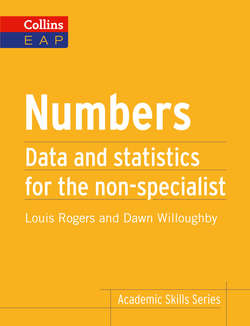Читать книгу Numbers: B2+ - Dawn Willoughby - Страница 19
Being specific
ОглавлениеOne of the biggest challenges is choosing a research question that is specific enough. The idea of writing 15,000 or 20,000 words in your own language can make people feel quite worried, and doing it in another language for your Bachelor’s or Master’s degree can seem even more challenging. Many of the English exams to gain entry to a university only require students to write 250 words in English. So when, in perhaps just nine months of completing that test, you have to write 20,000 words, very few people worry about being specific. Many think – can I write that much? When people choose a topic that is too broad it can be difficult to answer in 15,000 to 20,000 words as there are too many things to cover. It can create problems conducting the literature review as you will have too many things to read. It could also mean that you do not have the time or resources to conduct your own research and write it up. Try to build on topics. Think about the following: has this area already been well researched? Is there a clear research methodology I could use? Can I bring a slightly new perspective to the topic? How specific you need to be will vary between courses, but it is essential you think about these questions in order to make your project realistic.
Glossary
specific If someone is specific, they give a description that is precise and exact.
Exercise 2
Which of these research questions sounds specific enough?
1 Does regular exercise reduce stress levels in men aged 18–25?
2 Will a high-fibre and low-fat diet be sufficient to reduce cholesterol levels in middle-aged women?
3 Does exercise improve mental health?
4 Does motivation affect levels of effort?
Tip
Try to be as focused as you can from the start. Look at as many previous students’ dissertations as possible to help guide you. Ask your supervisor for help and guidance when you feel you need it.
Exercise 3
Think about your possible research question and ask yourself these questions.
1 Can you answer your question in just a few months?
2 Is your question specific enough? Brainstorm all the different things you might include and then imagine how many words it might take to cover each.
3 Have you read previous students’ projects? How long was each section?
4 Once you have collected your data how will you analyse it? How long do you think this might take? If you are doing something that requires you to write down what was said, for example an interview, practise this by recording a friend and writing down what they say. Time yourself and then imagine how long this might take once you have interviewed the number of people you want to interview.
5 Can you get access easily to people you want to interview, use in a focus group or give your questionnaire to?
Exercise 4
Decide if the following statements are true or false.
| 1 Being broad in your research aims is positive. | True / False |
| 2 You shouldn’t read previous students’ work in case it’s not very good. | True / False |
| 3 Planning is key to a successful project. | True / False |
| 4 Transcribing is quick and simple. | True / False |
| 5 Finding a new angle on an existing topic is a good idea. | True / False |
